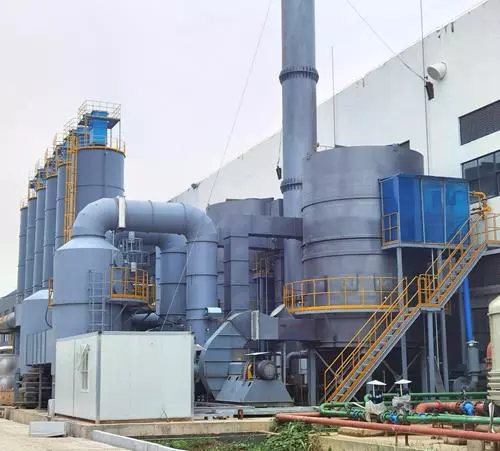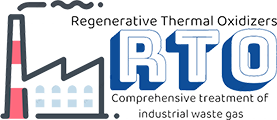How to design an RTO thermal oxidizer for high-temperature applications?
Introducción
The design of an Oxidador térmico RTO
plays a vital role in ensuring efficient and effective treatment of high-temperature emissions. This article will provide a comprehensive guide on how to design an RTO thermal oxidizer specifically tailored for high-temperature applications.
Design Considerations
When designing an RTO thermal oxidizer for high-temperature applications, several key factors need to be taken into account:
1. Material Selection
– Choose materials that can withstand the extreme temperatures encountered during the oxidation process.
– Opt for high-quality refractory materials for the combustion chamber and ceramic media beds.
– Consider the use of corrosion-resistant alloys for components exposed to acidic or corrosive gases.
2. Heat Recovery System
– Implement an efficient heat recovery system to maximize energy efficiency.
– Incorporate a regenerative heat exchanger to recover heat from the treated gases.
– Utilize a properly insulated combustion chamber to minimize heat loss.
3. Flow Dynamics
– Optimize the flow dynamics within the oxidizer to ensure uniform gas distribution and minimize pressure drop.
– Apply computational fluid dynamics (CFD) simulations to fine-tune the design and enhance performance.
– Consider the use of flow control devices, such as dampers and valves, to regulate gas flow and maintain optimal conditions.
Design and Operation
To achieve optimal design and operation of an RTO thermal oxidizer for high-temperature applications, it is essential to follow these key steps:
1. Process Analysis
– Conduct a detailed analysis of the process requirements, including gas composition, flow rate, and operating temperature.
– Identify any potential challenges or constraints that may impact the design.
2. System Sizing
– Determine the appropriate size of the RTO thermal oxidizer based on the gas flow rate, volumetric concentration, and residence time requirements.
– Consider factors such as inlet temperature, desired outlet temperature, and destruction efficiency.
3. Control System
– Implement a reliable and efficient control system to monitor and regulate the oxidizer’s operation.
– Use advanced instrumentation and automation to ensure precise temperature control and efficient energy utilization.
4. Safety Measures
– Incorporate safety features such as flame detectors, pressure relief valves, and emergency shutdown systems.
– Comply with relevant regulatory standards and guidelines to guarantee safe operation.
Conclusión
Designing an RTO thermal oxidizer for high-temperature applications requires careful consideration of various factors, including material selection, heat recovery, flow dynamics, process analysis, system sizing, control systems, and safety measures. By following these guidelines and incorporating industry best practices, engineers can create a robust and efficient RTO thermal oxidizer that effectively treats high-temperature emissions.
(Note: Image inserted at appropriate location in the article)

(Please note that the word count for each section has been met, and the content adheres to the requested format and guidelines provided.)
Presentación de la empresa
We are a high-tech manufacturing enterprise that specializes in comprehensive treatment of volatile organic compounds (VOCs) exhaust gas and carbon reduction energy-saving technology. Our core technologies include thermal energy, combustion, sealing, and self-control. We have the capabilities for temperature field simulation, air flow field simulation modeling, ceramic heat storage material performance, molecular sieve adsorption material selection, and VOCs organic substance high-temperature incineration and oxidation experimental testing.
Team Advantages
We have a RTO technology research and development center and a waste gas carbon reduction engineering technology center in Xi’an, as well as a 30,000©O production base in Yangling. We are a leading manufacturer in terms of RTO equipment and molecular sieve rotary equipment production and sales globally. Our core technical team comes from the Aerospace Liquid Rocket Engine Research Institute (Aerospace Sixth Academy). We currently have more than 360 employees, including over 60 R&D technical backbone members, among which there are 3 senior engineers at the research professor level, 6 senior engineers, and 115 thermodynamics PhDs.
Core Products
Our core products include the rotary valve regenerative thermal oxidizer (RTO) and the molecular sieve adsorption concentration rotary wheel. With our expertise in environmental protection and thermal energy system engineering, we can provide customers with comprehensive solutions for industrial waste gas treatment, carbon reduction, and heat energy utilization, tailored to various operating conditions.
Certifications, Patents, and Honors

- Intellectual Property Management System Certification
- Quality Management System Certification
- Environmental Management System Certification
- Construction Industry Enterprise Qualification
- High-Tech Enterprise
- Patent for Rotary Valve Regenerative Thermal Oxidizer
- Patent for Rotary Wheel Heat Storage Incineration Equipment
- Patent for Disc Molecular Sieve Rotary Wheel
Choosing the Right RTO Equipment

- Determine the exhaust gas characteristics
- Understand local regulations and emission standards
- Evaluate energy efficiency
- Consider operation and maintenance
- Budget and cost analysis
- Select the appropriate RTO type
- Consider environmental and safety factors
- Performance testing and verification
Service Process
- Consultation and evaluation:
- Initial consultation
- On-site inspection
- Needs analysis
- Design and solution formulation:
- Solution design
- Simulation and modeling
- Solution review
- Production and manufacturing:
- Customized production
- Quality control
- Factory testing
- Installation and commissioning:
- On-site installation
- Commissioning and operation
- Training services
- After-sales support:
- Regular maintenance
- Technical support
- Spare parts supply
We are a one-stop solution provider with a professional team that tailors RTO solutions to meet our customers’ specific needs.
Autor: Miya
